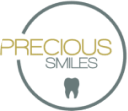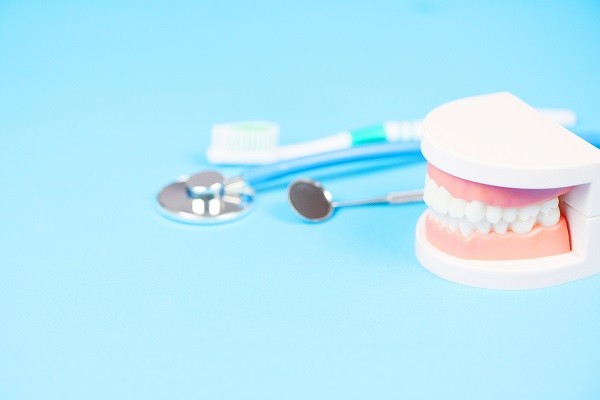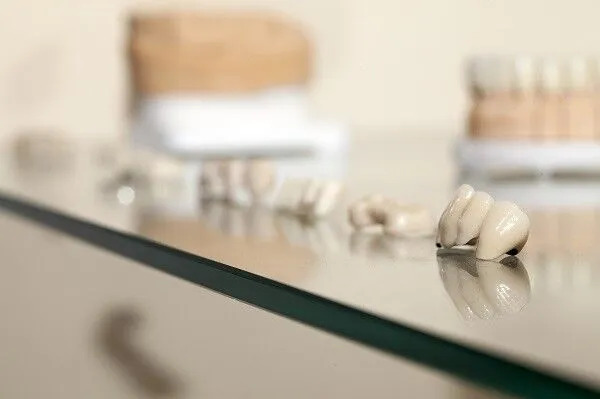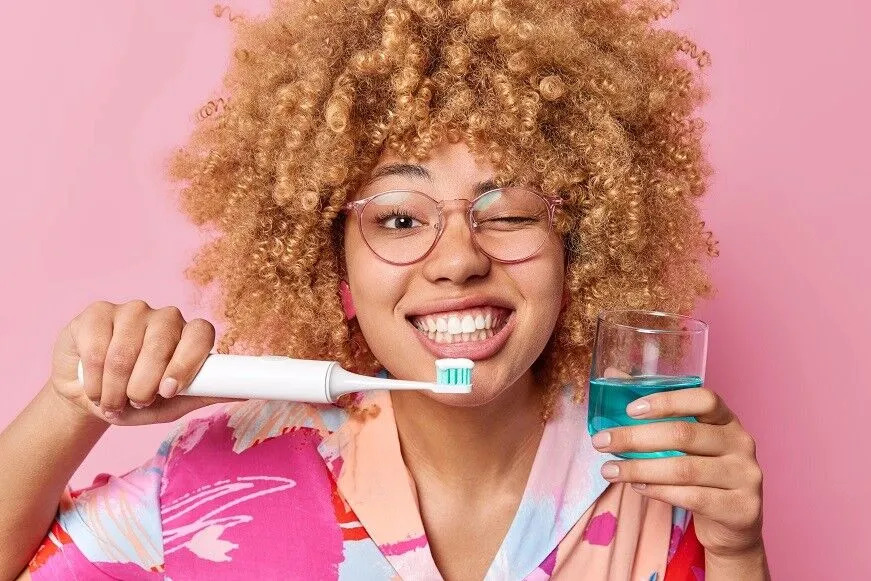Dental implants are certainly a worthwhile investment for those who take good care of them. One of the primary reasons customers prefer the implants is that they don’t need to remove dentures every night. On the downside, they are more challenging to keep clean because they have to be cleaned like natural teeth.
Dental implants should be flossed and brushed daily, just like natural teeth. You may find that they are more challenging to clean, which is why special brushes and flosses are so often recommended for dental implant recipients.
You are invited to continue to the sections below, where you’ll learn more about how to keep your mouth clean and healthy when you have dental implants.
Do Dental Implants Need To Be Cleaned?
It happens every so often. A dental implant recipient comes into the office after noticing that their dental implant has deteriorated prematurely. They wonder why this is the case and, in some scenarios, may demand a refund because their implants have malfunctioned.
However, in most cases, the deterioration of dental implants can be chalked up to a lack of communication or a misunderstanding of the importance of keeping dental implants clean. Dental implants need to be cleaned just like regular teeth need to be cleaned, as they are subject to decay caused by beverages, foods, and bacteria that naturally live in the mouth.
How To Clean Dental Implants
The key to good dental care is to develop a few good habits. Below, you’ll learn how to keep your dental implants clean so that you don’t end up having to replace them prematurely.
Learn How To Brush Your Teeth The Right Away, Twice Per Day
The first step to practicing proper dental care is learning to master the correct brushing method, says the American Academy Of Implant Dentistry. This may mean going against your instinct when it comes to brushing motion.
- Don’t brush back and forth in a sawing motion: This doesn’t clean the teeth effectively and can scrub away tooth enamel.
- Instead, place your toothbrush at a 45-degree angle where the teeth meet the gums. Proceed by moving the toothbrush gently back and forth, taking time to make sure that the bristles cover each area.
- Watch this video by the American Dental Association if you have any questions.
Your dental implant specialist’s office will be more than happy to give you some pointers on your tooth-brushing game. They may also direct you to specific types of brushes and toothpaste that can make it easier to keep dental implants clean.
Floss Every Day; Consider Getting A Water Flosser
Every day you should floss between your dental implants in much the same way that you floss all your other teeth, although you may find it much more difficult to floss in between dental implants than normal teeth. This is where a water flosser can come in handy.
Water flossers, such as the one found here, shoot a jet of water in between your teeth. It’s able to reach those hard-to-get-to places with ease and rapidly dislodges bits of food without extra effort.
Get Professional Cleanings
You should visit the dentist at least once every six months for a professional cleaning. This will help ensure that any signs of tooth decay are caught early on and taken care of. Professional dental hygienists come highly trained and with advanced cleaning equipment.
Those in the Phoenix area are in luck, as this Scottsdale dentist offers plenty of opportunities for dental check-ups every week.
Be Careful About What You Eat
The food you eat and the beverages you drink have a significant impact on the health of your teeth and the longevity of dental implants. You can ensure proper dental tips by following a couple of simple dieting tips.
- Don’t bite down on hard items such as ice or hard candy. You should also cut down on caffeinated coffee and sodas that can stain the teeth and implants.
- Cut back on sugary items, as these can lead to tooth decay.
- Soups, pasta, and yogurt are encouraged, especially during the week following implant surgery.
How To Clean All-On-Four Dental Implants
All-on-four dental implants are an affordable solution for patients in need of removable dentures. They are also easier to live with because they require fewer implants into the jaw versus traditional methods. They do come with some special cleaning instructions, however:
- Electric toothbrushes are encouraged for more thorough cleaning of the surface.
- A rubber-tipped gum stimulator, like the one found here, will help you dislodge food debris found at the base of the gum. Unfortunately, dental implants are not lodged as tightly into the gums as natural teeth are.
Final Thoughts
Dental implants should be brushed twice per day and flossed, just like regular teeth. You must make sure you are using the proper form. You may find this to be much easier if you use special floss and brushes, as directed by your dentist. Contact us to schedule an appointment by calling us at (480) 607-0498 today.




